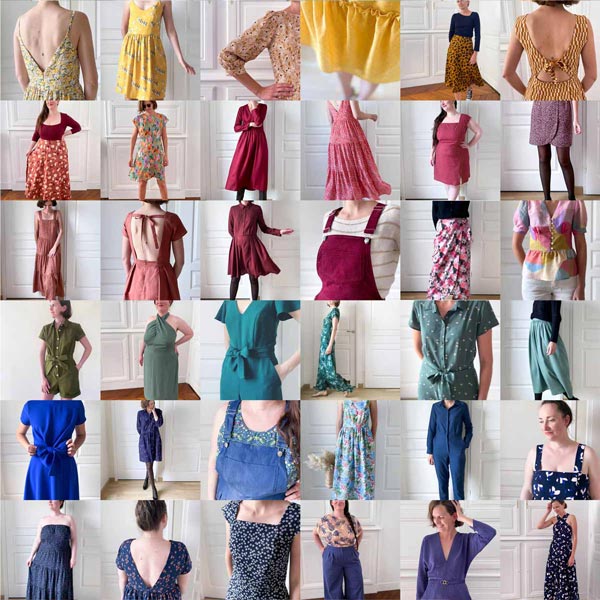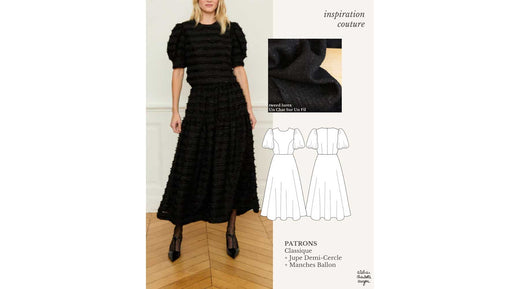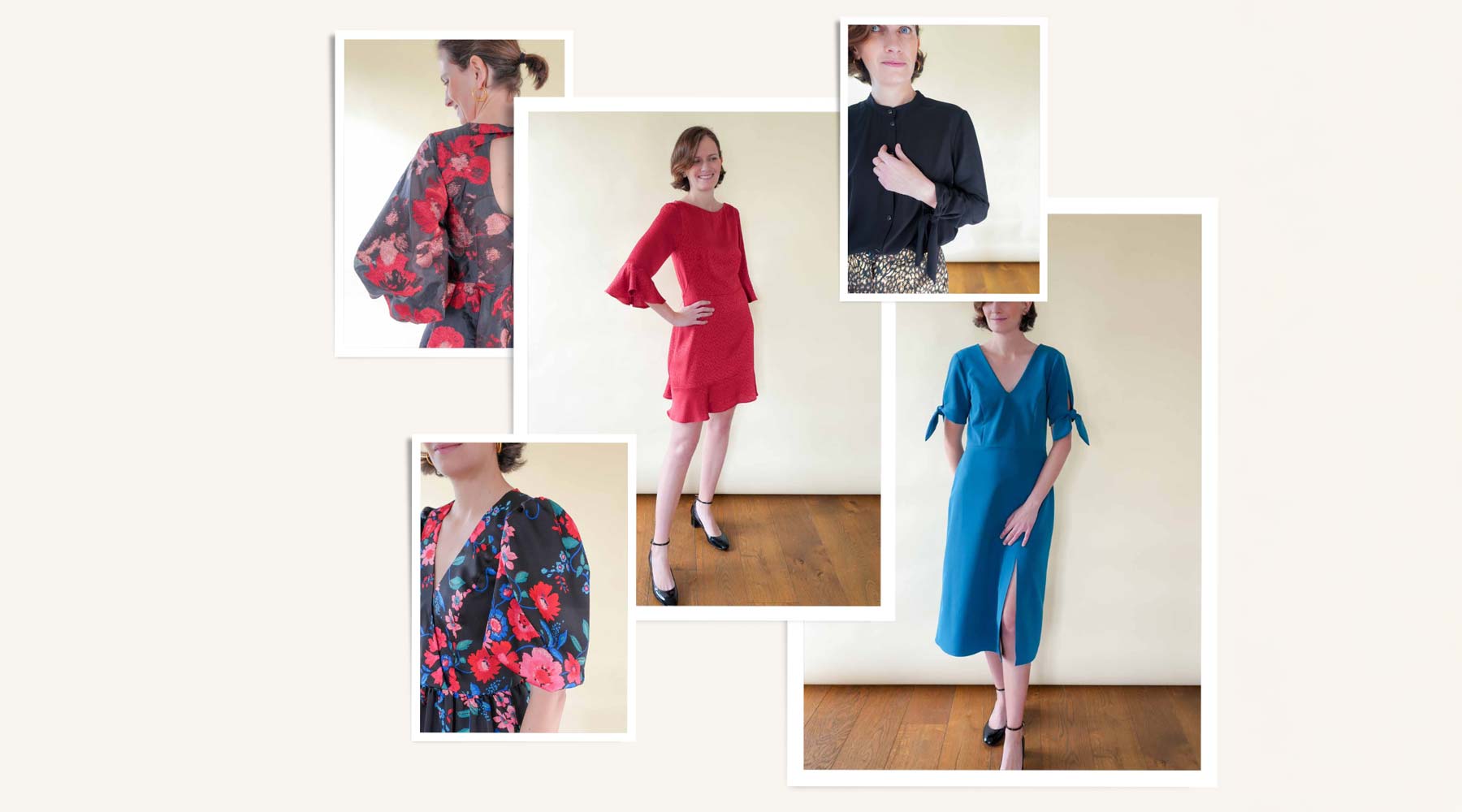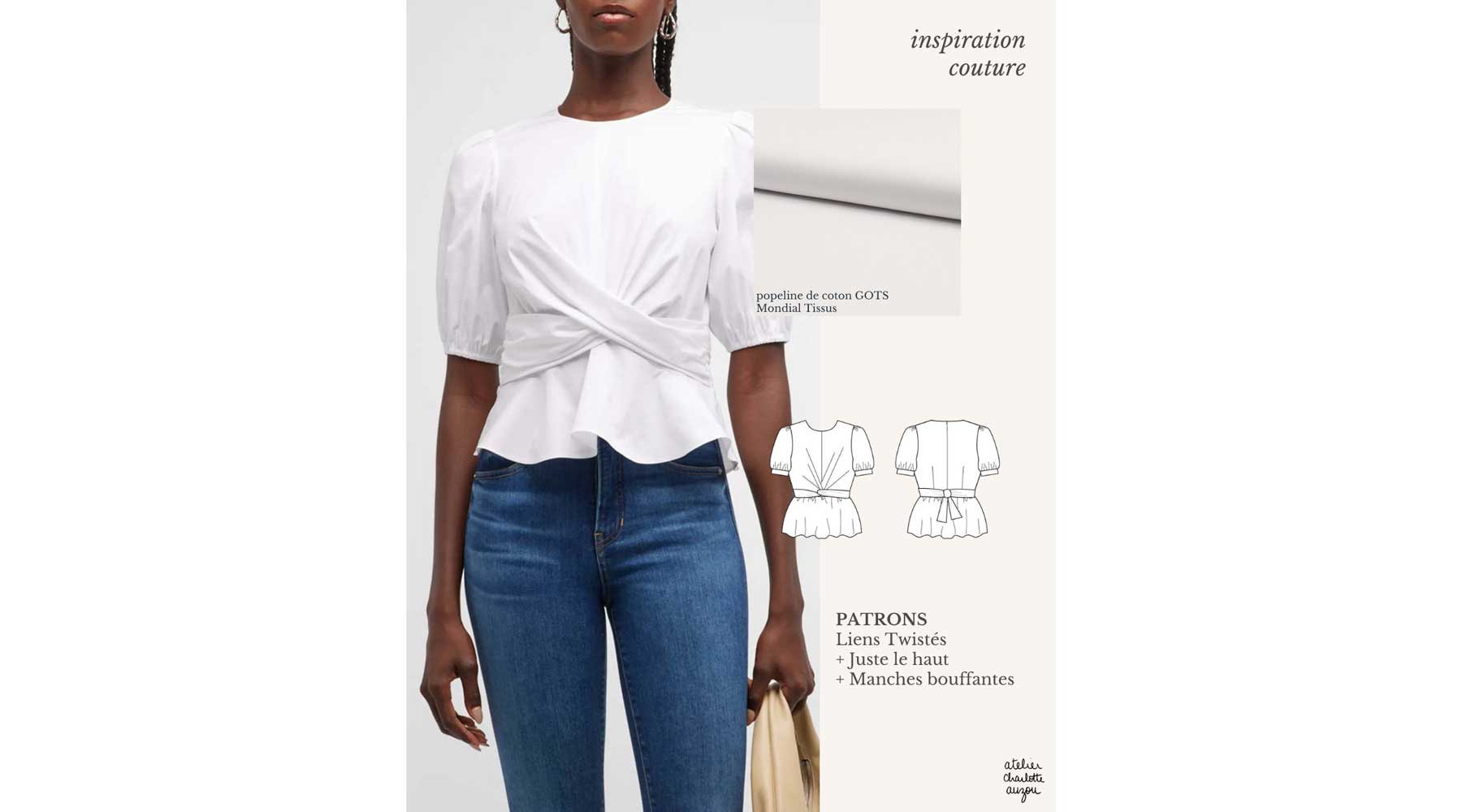Tips for sewing a toile and study pieces

Before sewing a new pattern and cutting into its beautiful fabric, it is often advisable to make a toile. The success of a project depends on its preparation!
I will explain to you what it is for, which fabric to choose and give you tips for carrying out this step simply.
What is the canvas?
The toile is a test version of a garment sewn in a cheap fabric with a similar drape to your final fabric. It is a draft on which you will be able to make all the mistakes that you would not like to make with your beautiful fabric ;) The toile will allow you to familiarize yourself with the assembly of the model and to carry out a fitting to identify possible pattern adjustments.
What fabric should I use to make my canvas?
The fabric used to make the canvases can be called butter cloth or calico. For my part, I buy it at Fil 2000 at €3.10 per meter and the width is a little larger than a classic clothing fabric.
You can also find them at Self Tissus or Stragier . I also recommend Les Coupons de Saint Pierre and their 3 meter coupons which can be cheap.
Finally, I regularly use the scraps from my sewing projects to make my canvases. Be sure to choose fabrics of similar quality so as not to alter the final drape. A sleeve in one fabric, the front of the skirt in another, etc. I then obtain a patchwork-style creation, ultra aesthetic ;-)

How do I sew my canvas quickly?
The toile is not intended to be a perfect version of the future garment, so it does not need to have the same level of finishing. Here are some tips for sewing your toile quickly:
- do not cut facings or linings
- do not sew the hems
- instead of the zipper, sew a line of straight stitches to its final location and pin directly to yourself when trying it on
- Remove embellishment details like ruffles from your template (unless you want to test the aesthetic result)
- At the necklines and armholes (for a sleeveless dress), sew straight stitches at the seam line and notch. Iron the seam allowances towards the inside.
- lengthen your straight stitch so you can unpick it more easily if necessary
- do not overlock
How do I adjust my pattern from my toile?
Once the canvas is sewn, you will need to try it on to determine any adjustments that need to be made to the pattern.
- Check the ease.
Is it enough or too much? To do this, move! You have to sit down, raise your arms in the air, dance... Pin at the side seams if the dress is too big. Or modify the seams by reducing the margins if it is too tight. Dance again ;) - Check the stature.
Is the dress too long or too short? Look at the waist seam and make sure it falls at your natural waistline. Determine if the darts or princess seams are in the right place for your bust. Note the hemline you want.
If you change the side lines, make sure to do it symmetrically. You can write on your canvas, sew or unsew, cut... Experiment!
What to do with my canvas?
Don't throw it away! There's no point in keeping everything, but if you cut large pieces like skirts, keep your toile to cut into your next toile.
The study rooms
Last tip for preparing your sewing project...
When my future creation involves technical difficulties, I make study pieces. These are assemblies that will allow you to practice and test these techniques on your final fabric.
- What is the right interfacing for my fabric?
- What is the correct stitch length for my topstitching?
- Will my scallops be stiff enough with this facing?
- Do I need to reinforce my fabric on the bias?
- How to sew a piped pocket?
- etc...
To do this, cut a small piece of fabric (approximately 20 by 20 cm, to be adapted according to the technique) and sew the technique in question.
 In this example, I tested whether my fabric + lining + interlining assembly was the right one for the good hold of my scallops.
In this example, I tested whether my fabric + lining + interlining assembly was the right one for the good hold of my scallops.
Once all these preparation steps are completed, you are ready to start cutting your final project! Happy sewing!






11 comments
Bonjour et un grand merci Charlotte pour tous vos conseils que je m’empresse de lire dès l’arrivée de votre mail.
Marie-Ange
@KUSTER : je ne connais pas ce type d’outil mais je vous conseille de chercher des matières similaires mais dans des étoffes plus bon marché. Par exemple, si vous cousez un tulle de soie, choisissez un tulle en polyester. N’hésitez pas à commander des échantillons pour trouver les bonnes équivalences.
CHARLOTTE
Bonjour Charlotte,
Existe-t-il un outil/comparateur pour trouver quels tissus choisir pour faire sa toile de robe de mariée dans des matières permettant un rendu brouillon comparable au rendu final ?
Merci d’avance pour votre réponse !
KUSTER
Merci pour ces conseils qui vont me permettre de ne pas gâcher le tissu et surtout continuer mon projet.
BOISDON
Magnifiques conseils
Louisie
Merci pour cet article!!
Lucie
Merci pour ces conseils !
Tiffany
@INÈS : il s’appelle Lady Valet et vient de chez Rascol. Merci !
CHARLOTTE
Bonjour, votre mannequin a l’air splendide : pouvez-vous me dire d’où il vient ?
Merci 🙏
Inès
Merci bcp pour toutes ces précieuses informations😀
Véronique
Merci pour cet article très intéressant !
Isabelle
Leave a comment
This site is protected by hCaptcha and the hCaptcha Privacy Policy and Terms of Service apply.